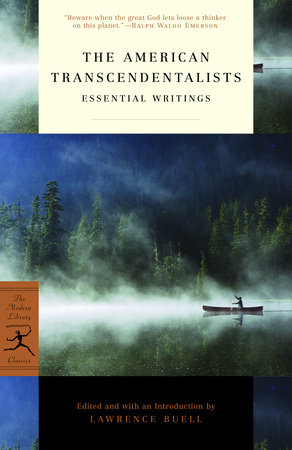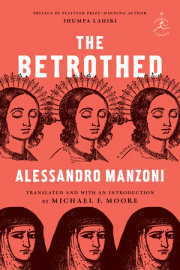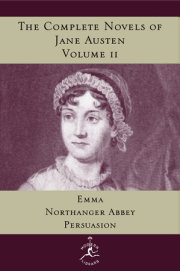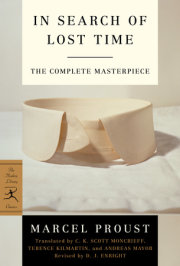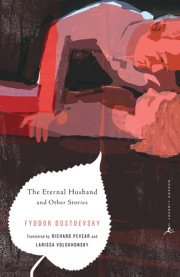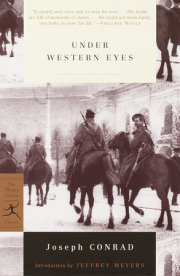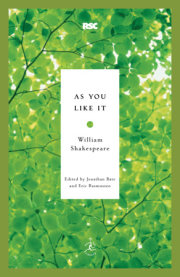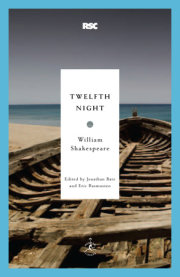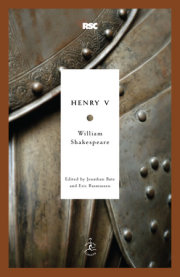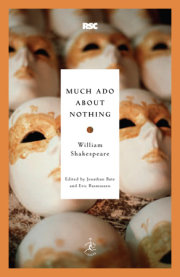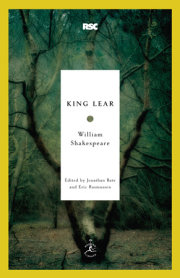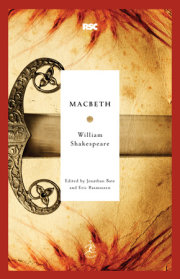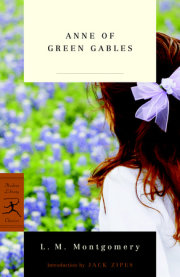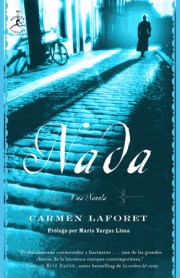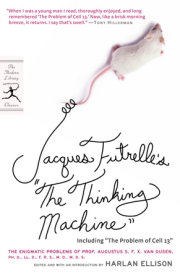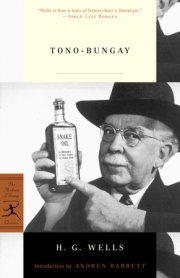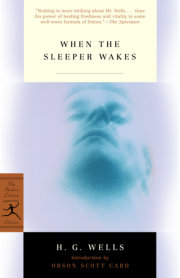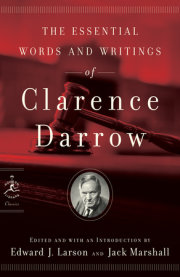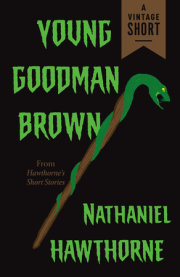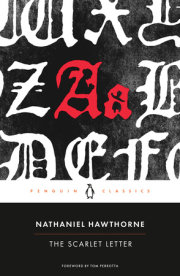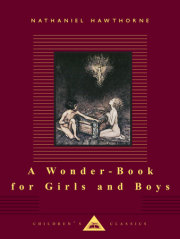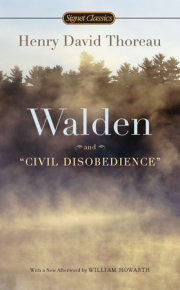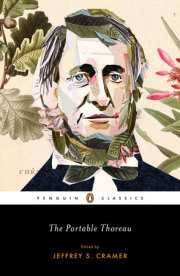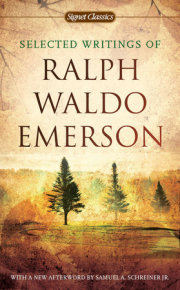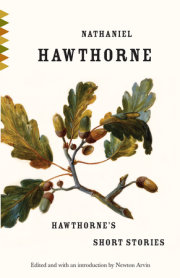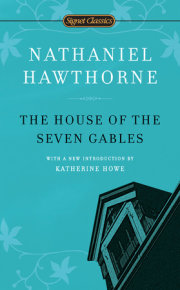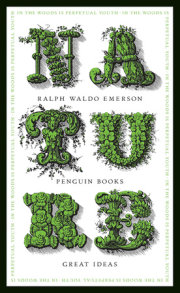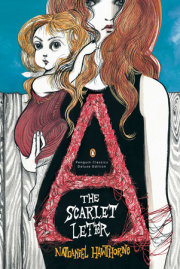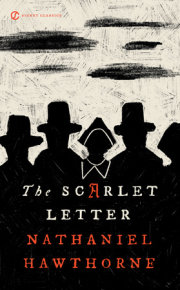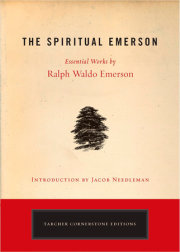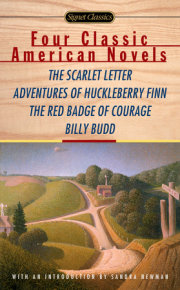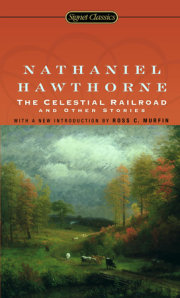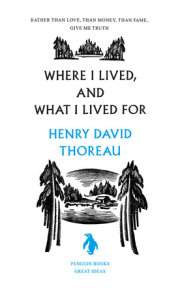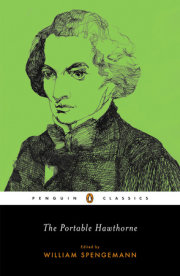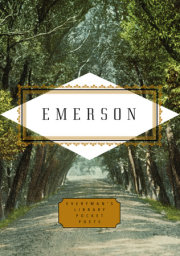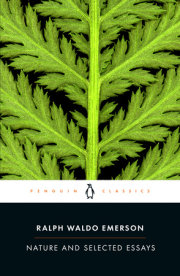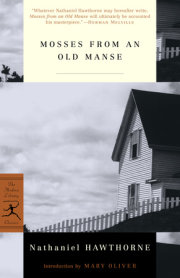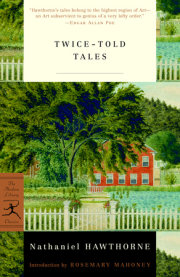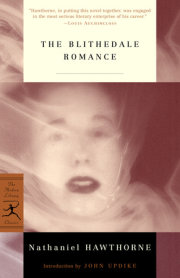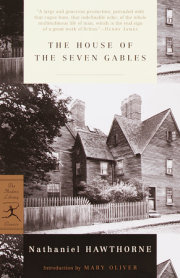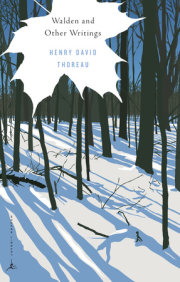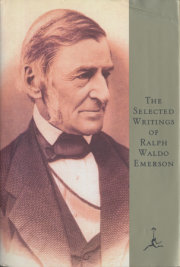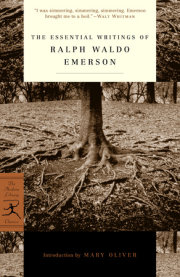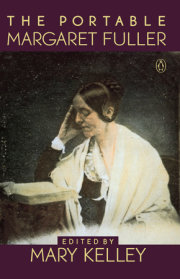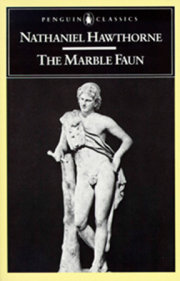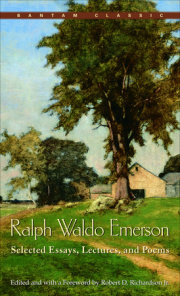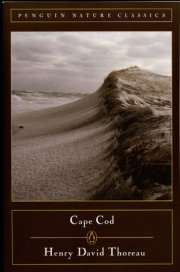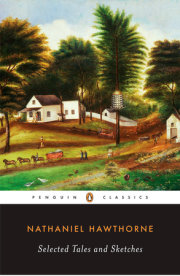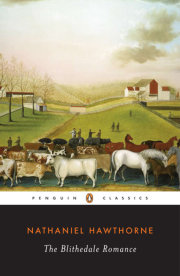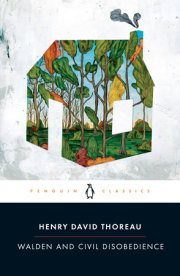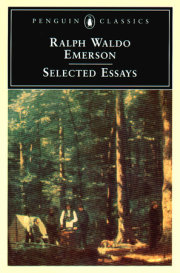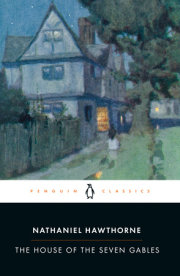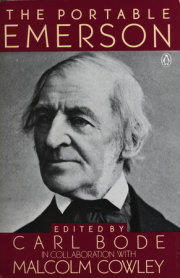1.
Mary Moody Emerson
Letters to a Future Transcendentalist
(1817--51)
Mary Moody Emerson (1774-1863) was Ralph Waldo Emerson's aunt and first mentor. She was a striking figure in her own right. She impressed all who came into contact with her--which included most of the Transcendentalist circle--with her unsystematic brilliance, her spiritual intensity, her biting wit, and her eccentric force. The younger sister of Emerson's father, she became the family matriarch after his early death. She had high hopes that Ralph Waldo would distinguish himself in the ministerial career that the men in his family had pursued for six unbroken generations back to colonial times. She wound up driving him toward Transcendentalism even as she tried to warn him away.
The many letters she sent him over more than forty years display her unique talents. They led Emerson, astonishingly, to praise her as one of the great prose stylists of her day, although she wrote almost nothing for publication. Both of them relished their correspondence. Many of Mary Emerson's turns of thought and even her turns of phrase resurface in his own later essays. They took a similar delight in the natural world, in ranging widely through Asian as well as western thought and literature, in moral and spiritual inquiry, and in a headlong free-associative style of thought and expression.
Here are a dozen passages from Mary's letters to her nephew, starting with a comically extravagant letter of congratulation upon the start of his freshman year at Harvard at the tender but then typical age of fourteen. Often she responds pointedly to his own letters and compositions, from a juvenile proposal for "reform" of drama through high-minded literary criticism (item 4) to major work like his 1838 Divinity School Address (item 11), which took her aback, as it did most of his elders. Mary's oblique reflection on the controversy, her fable of Urah, may have suggested Emerson's poem "Uriel" (see Section V-B below).
Too conservative to approve of Waldo's Transcendental turn, Mary Emerson nonetheless helped set him--and the movement--on the way. But no matter how famous he became, she never ceased to admonish him when she thought he deserved it. Her charge that wealth was a topic unworthy of him (item 12) is a prime example.
SOURCE: The Selected Letters of Mary Moody Emerson, ed. Nancy Craig Simmons. Athens: University of Georgia Press, 1993. Spelling as well as punctuation of these letters have been partially normalized for the sake of readability.
(1)
What dull Prosaic Muse would venture from the humble dell of an unlettered district, to address a son of Harvard? . . . In that great Assembly, where human nature is purified from its native dross & ignorance, may the name of my dear Waldo be inrolled.
[NOVEMBER 4, 1817]
(2)
The spirits of inspiration are abroad tonight. I have rode only to go out & see the wonderous aspect of nature. . . . We love nature--to individuate ourselves in her wildest moods; to partake of her extension, & glow with her colors & fly on her winds; but we better love to cast her off and rely on that only which is imperishable. Shakespeare has admirably described the universal influence of the infinite Spirit by that of the sun, whose light & warmth brings to maturity the healthiest plant & the most poisonous--corrupts the corruptible, & nourishes the splendid tribe of flora with the same beam. What an illustration--and of what a truth! . . . Right and wrong have had claims prior to all rites--immutable & eternal in their nature . . . [JANUARY 18, 1821]
(3)
I have been fortunate this week to find a Visitor here from India, well versed in its literature & theology. He showed us some fine representations of the incarnation of Vishnoo. They are much akin to Grecian fable--and from his representation I believe the incarnations to be much like the doctrine of transmigration. At bottom of the histories of the incarnations is often the doctrine of the universal presence & agency of One God. . . .
As to books, I've been only where you have, sometimes in Merlin's cave and Homer's shades, sometimes. Was delighted with the speech made by Ulysses to the shade of his mother. [Alexander] Pope's--is it better in original? Have been surprised to find in the 10th book of [the Roman poet] Juvenal some lines very like to the concluding ones of [Samuel] Johnson's "Vanity of Human Wishes." Could Johnson have borrowed from the heathen? [MAY 24, 1822]
(4)
. . . As to words & languages being so important--I will have nothing of it. The images, the sweet immortal images are within us--born there, our native right, and sometimes one kind of sounding word or syllable wakens the instrument of our souls and sometimes another. But we are not slaves to sense any more than to political usurpers, but by fashion & imbecility. Aye, if I understand you, so you think.
In the zeal of writing I began with the last sentence of your letter, & have just read backwards till I am now for the first time in cool possession of the whole letter--Glad to hear you complain of fine splendid expressions without proportionate fine thoughts. But not that in order to judge you must read all the pieces or rather that you intend a reform which will oblige you to go thro' such bogs & fens & sloughs of passion & crime. . . . And to me who am, if possible, more ignorant on the history & character of the Drama than any other subject, it seems a less usefull exercise as it respects the reformer than any scientific or literary pursuit. [JUNE 26, 1822]
(5)
. . . Would to God thou wert ambitious--respected thyself more & the world less. Thou wouldst not to Cambridge [to enroll at Harvard Divinity School.] . . . It is but a garnished sepulchre where may be found some relics of the body of Jesus--some grosser parts which he took not at his ascent . . . [NOVEMBER 7, 1824]
(6)
It is worse than idle to ridicule the fall--unless you can account for the origin of evil. . . . The apple may be allegorical--but if it were real it answered for a sign, an arbitrary one, be sure, of a government disciplinary & perspective. The principle of obedience is the first in education--and the more trifling the object the more important the danger of defection. . . . Evil must have a beginning. If it were eternal--! What should we infer--that eternal right was coeval with--& implied in its opposite? . . . Well, one & all have the subject in the dark where God intended. And I never talk of the fall nor think of it--for the difficulties are too great. [JULY 8, 1827]
(7)
Would I could die today that this aching sense of immortality might be satisfied or cease to ache. The difficulty remains the same when I struggle with the extension of never never never--just as I repeated the exercise in childhood: cant form an idea, cant stretch myself to that which has no end. It may be owing to the limits of childhood repeating the idea & wishing to come at an end in vain. . . . It is this impossibility of losing oneself, tho' ages pass over the change, that argues immortality. [SEPTEMBER 9, 1827]
(8)
My thanks for the sensibility you express at my being hurt to be thought by you distraught. But after all I do appear so to other folks, when under the influence of the indifference I feel to society (or somthing worse) with the extreme pleasure of wittnessing their fine things. The fears which I read in the countenance of my family lead me to act more independently than I should, if I were coaxed with their confidence. . . . You have borne with my outre manners and protected them better than any youth. Only forgive me greater & worser defects of character--and these which pass away with the discordant humours of the body are of no import. [MAY 2, 1828]
(9)
Let us not complain of calvinism--its most terrible points are better than nothing. If the bible is a fable I would cherish it now in age with undying zeal--It may have a truth of infinite weight like other fables which have a little. But it is not a fable I know. It answers to the living consciousness of God's impress on the soul. It develops the divinity within. Not the poetic gospelless divinity of German idealism--whose baseless fabrick will vanish into thin air. [AUGUST (?) 1829]
(10)
You most beloved of ministers, who seemed formed by face, manner & pen to copy & illustrate the noblest of all institutions, are you at war with that angelic office? . . . And I may ask what you mean by speaking of "a great truth whose authority you would feel as its own"? In the letter of Dec 25 you [write] "whether the heart were not the Creator." Now if this withering Lucifer doctrine of pantheism be true, what moral truth can you preach or by what authority should you feel it? Without a personal God you are on an ocean mast unrigged for any port or object. Then why not continue to preach--& pray too? Where is the truth, so infinitely weighty with the true theist, injured? Some body must keep up these idle institutions & they may keep men from jail and gallows. What better scope for the intellectual reservoir? And such has been your integrity, whenever I have been indulged with hearing or reading, what St Paul, who had the fullest convictions of Jesus being the only medium of communication with the Incomprehensible, would not tax your sincerity, tho' he would regret the different character you assigned. Pardon me if I declaim with the garrulity of age.
[FEBRUARY 1832]
(11)
I love to gaze after the illuminati. . . . Yet believe with Burke that no improvement can be expected in the great truths & institutions of morality and religion. And I lost my inquiries in thinking of the fabled Urah, who belonging to the coterie of Plato, was sent down by that high person . . . to reform a certain district and give it some utopian ornaments--so dully progressive so sober & stale that in his disgust he breathed a fire which consumed every old land mark--tore up the moss-covered mounds; and the very altars which had been the refuge of the poor & sinfull & decrepit instead of being bettered were almost demolished--and in the destruction it is said that the wings of the spiritual vehicle were so scorched that he was forced to ask aid of a disciple of the old reforming Patriarch who was buried on some old loved spot, and he, tho' looked on as a very plodder, constructed a chariot of clouds which conveyed the messenger home to new fledge his wings. And the story goes, that when they were in action again he visited the same place & found it overrun with barbarism & governed by an ugly Radicale. [SEPTEMBER 1838?]
(12)
Wealth my dear Waldo: how could you--you gifted to rouse the interior to make even Christians think & feel at certain high sentiments--how, under what illusion, could you lecture to Concord of its advantages? You sap the foundations of all that is great & independant. Oh send the young to Brothels & intemperance. . . . You who have steadily stood for the rights of the slave are riveting his chains & pursuing the fugitive with increasing the rage the mania for wealth. Were you poor (and the papers speak of your high taxes) what a beautifull vision you might have drawn of its baseless fabrick while you awakened charity in its depths and glory. Forgive me if I offend, & send me the lecture.
[FEBRUARY 1851]
2.
Samuel Taylor Coleridge
Reason Versus Understanding
(1825, 1829)
Coleridge (1772-1834) was a leading British Romantic poet and one of the most inventive critical thinkers of his age. Along with Thomas Carlyle, he was more influential in interpreting German thought for American audiences than any other early-nineteenth-century British writer. A prime example is Coleridge's restatement of the Kantian distinction between "Reason" and "Understanding," in the face of the prevailing Anglo-American view, which rested on John Locke's contention that all knowledge is derived empirically, from sense experience. In Locke's view, reason and understanding were synonymous. Coleridge prepared the way for the Transcendentalist conception of Reason as a power of mind or soul that enables a person to grasp divine or Transcendent truth intuitively. (Ironically, Kant himself had explicitly denied the human mind such power. Such are the vagaries of intellectual history.) Coleridge's distinction reached most Transcendentalists through the American edition of his Aids to Reflection (1829), edited by Vermont Calvinist James Marsh (1794-1842). This indeed was "the decisive event in establishing respect" for Coleridge "as a thinker," as the authoritative modern scholarly edition of Aids declares. Marsh's prefatory remarks chastised Locke and seconded the importance of the Reason-Understanding distinction in ways that prompted both foes and friends to lump Marsh with the Transcendentalists--to his acute irritation.
SOURCE: Aids to Reflection, ed. James Marsh. Burlington, Vermont: Chauncey Goodrich, 1829. Reprinted from the original English edition of 1825.
Reason is the Power of universal and necessary Convictions, the Source and Substance of Truths above Sense, and having their evidence in themselves. . . . Contemplated distinctively in reference to formal (or abstract) truth, it is the speculative Reason; but in reference to actual (or moral) truth, as the fountain of ideas and the Light of the Conscience, we name it the Practical Reason. Whenever by self-subjection to this universal Light, the Will of the Individual, the particular Will, has become a Will of Reason, the man is regenerate: and Reason is then the Spirit of the regenerated man, whereby the Person is capable of a quickening inter-communication with the Divine Spirit. . . .
On the other hand, the Judgments of the Understanding are binding only in relation to the objects of our Senses, which we reflect under the forms of the Understanding. . . .
To apply these remarks for our present purpose, we have only to describe Understanding and Reason, each by its characteristic qualities. The comparison will show the difference.
UNDERSTANDINGREASON
1.Understanding is discursive.1.Reason is fixed.
2.The Understanding in all its 2.The Reason in all its decisions
judgments refers to some other appeals to itself as the ground
faculty as its ultimate authority.and substance of their truth.
3.Understanding is the faculty 3.Reason of Contemplation. . . .
of Reflection.-Reason is a direct Aspect of Truth, an inward Beholding, having a similar relation to the Intelligible or Spiritual, as Sense has to the Material or Phenomenal.
Copyright © 2006 by Lawrence Buell. All rights reserved. No part of this excerpt may be reproduced or reprinted without permission in writing from the publisher.

